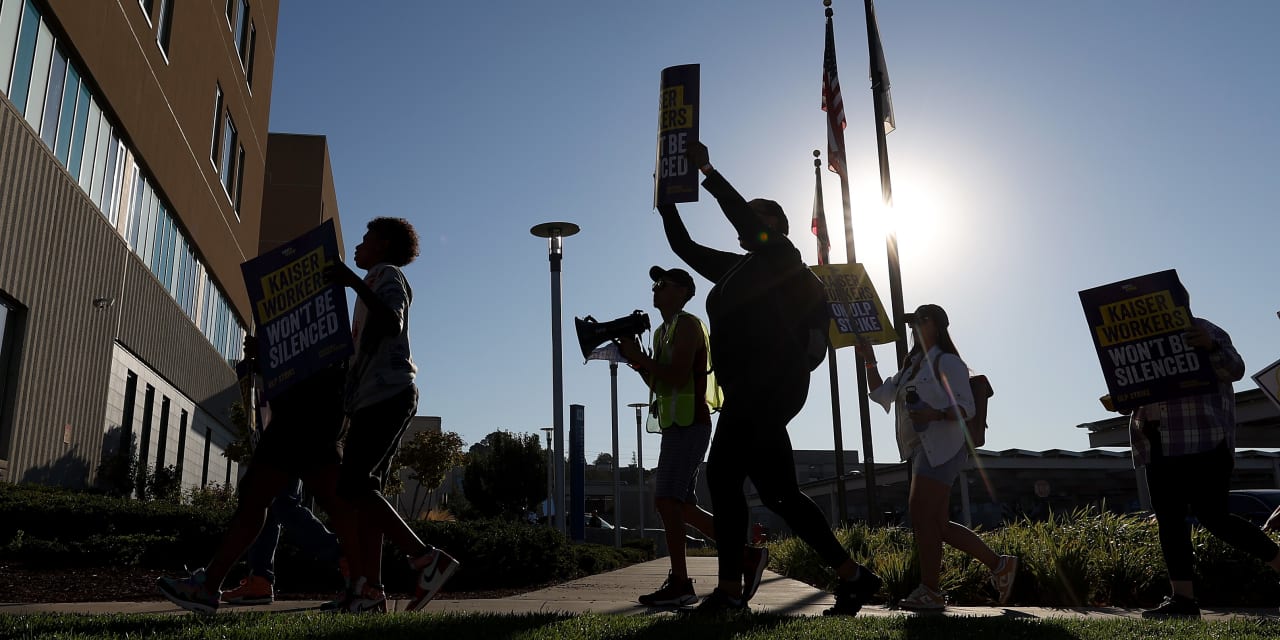Kaiser Permanente workers returned to the job Saturday without a contract agreement following a three-day strike.
More than 75,000 union workers at Kaiser, one of the largest nonprofit U.S. healthcare providers, protested against what they called unfair labor practices and unsafe staffing levels. They also sought pay raises and protections against outsourcing.
The Kaiser strike was the largest ever to hit the healthcare sector. The union has threatened a “longer, stronger” strike in November. Contract talks were scheduled to begin again Thursday. Acting Secretary of Labor Julie Su will be joining the negotiations when they resume, the Labor Department said.
Kaiser, based in Oakland, Calif., said it has 12.7 million members and operates 39 hospitals and 622 medical offices. It has more than 212,000 employees.
Kaiser Permanente told Barron’s earlier this week that its current offer includes “guaranteed across-the-board wage increases” from 12.5% to 16% over four years, and a $21 minimum wage in Washington, Oregon, Colorado, Virginia, Maryland, Washington, D.C., and Hawaii starting in 2024, and a $23 minimum wage in California starting in 2024.
The strike at Kaiser follows union walkouts by Hollywood writers, which ended last week, and the continued action by the United Auto Workers against
Ford
(F),
General Motors
(GM), and
Stellantis
(STLA).
The UAW said Friday that GM agreed to put its battery production work into the master agreement that governs UAW workers at the auto maker. Union President Shawn Fain said the UAW wouldn’t be escalating its strike activity at GM because of the progress in negotiations. Plants at both Ford and
Stellantis
also were spared from any expanded strike action.
Write to Joe Woelfel at joseph.woelfel@barrons.com
Read the full article here













Leave a Reply